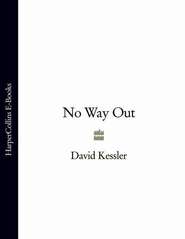По всем вопросам обращайтесь на: info@litportal.ru
(©) 2003-2025.
✖
Mercy
Автор
Год написания книги
2018
Настройки чтения
Размер шрифта
Высота строк
Поля
‘How do you expect to work as a lawyer on cases of your own if you’re afraid that you can’t compartmentalize your emotions?’
Nat had just shaken his head and turned away, as if struggling to contain those emotions.
‘I can’t do it,’ Nat had almost cried. ‘Not yet.’
Alex remained mystified but realized that he had to accept it. Whatever psychological baggage Nat was carrying, he couldn’t shake it off and wasn’t ready to share it with anyone else.
So on this case at least, Nat was functioning as little more than a driver. It was hardly a way to get ahead in his chosen profession. But in fairness to Nat, he had done a lot of background research. You couldn’t fault him for effort or enthusiasm. If Nat needed to keep Burrow at a distance to maintain that enthusiasm, then so be it.
It took a few minutes to process Alex through security. But it seemed to be getting quicker. They knew Alex now and he knew the drill, so less had to be explained to him about what he could and couldn’t bring in. Also, as the execution date drew near, they realized the urgency of these meetings and there was an element of sympathy for even the basest and most evil of murderers. Years on death row humbled and mellowed a man and even those prison guards who believed most strongly in capital punishment were ready to admit that by the time the condemned man is about to meet his maker, he is a very different man to the one who was sentenced to that fate.
Whatever they said about capital punishment being the ultimate individual deterrent, it was a punishment that eliminated the need for itself. It was living in the shadow of death that reformed a man’s character, not death itself. But for collective deterrence, the death penalty served no purpose, Alex felt. But there were others who were all too ready to argue the point.
When Alex was finally in the cell with Clayton Burrow, the condemned man appeared to be struggling to read the lawyer’s face.
‘What did he say?’ asked Burrow, a tremor of fear creeping into his voice.
‘It’s kind of complicated,’ Alex replied hesitantly.
‘What do you mean?’
Burrow’s breathing was heavy, as if not daring to hope.
‘He’s offering you clemency—but it’s conditional.’
‘What does that mean?’
‘It means he’s ready to commute your sentence to life if you ’fess up.’
‘That’s it?’ said Burrow, letting the air out of his lungs.
‘No, there’s one more thing. You’ve got to reveal where you buried the body.’
The smile vanished from the condemned man’s face.
‘Fuck it!’ yelled Burrow, pounding his left palm with his right fist. ‘Goddamn fuck it!’
Alex looked at his client, puzzled.
‘Why, what’s the matter?’
‘I can’t do it! I can’t fuckin’ do it!’
10:39 PDT (#ulink_3f134ce2-05da-5f09-a1ec-396b444c8d49)
It had been most kind of Chuck to lay on a limo, Esther Olsen thought.
The overpass drifted away behind them. But Esther was past the stage of admiring the view. On the way there it had been a distraction from her worries. She didn’t drive and illness had left her pretty nearly housebound. So any journey like this was an escape, both mental and physical. But the novelty soon wore off.
The same was true of the limousine. The luxury of its leather upholstery and lacquered wooden paneling raised her pleasure level by a microscopic degree. But such petty pleasures were short-lived when ranged against the quantum of suffering that had borne down upon her in recent years. First a murderer’s unbridled malice had claimed her daughter. Then the ravages of disease had selected her at random and struck her down with a death sentence of her own.
She had had her fair share of life and although it hadn’t always been a smooth ride, it was at least a fair crack of the whip. She could accept being singled out by the Grim Reaper. But it was the loss of her daughter that had been unforgivable: for that was the work of human agency. And she blamed not only Burrow but also her husband.
Yet it was precisely from this anger that she wanted to escape. That was why she had approached Dusenbury and persuaded him to offer clemency to Burrow. As her own fate loomed up ahead, she needed closure more than revenge. And that was also why, as she closed her eyes, she now felt herself drifting back to a happier time.
She couldn’t understand why, but of all the memories that flashed through her mind, the one that lodged itself and lingered at the forefront was the one-night stand.
They were both students: he celebrating the end of his tentative first year at law school; she celebrating completion of her finals for her bachelor’s degree in literature. It was one of those drunken frat parties where everyone knows someone but no one knows everyone. Even now she didn’t remember how they had ended up in the sack together. Yes, the drinks had been flowing freely. Yes, he was handsome. Yes, they had both been sitting in the corner, trying to withdraw from the rowdy celebrating and wild carousing that had long since lost its appeal for both of them. She wasn’t cerebral like him, more the free-spirited romantic type. But she was the quiet type. That much they had in common.
She was also engaged, to a decent if somewhat boring—not to say cold—man whose family was ‘well to do’ and who had ‘prospects’ according to her pushy mother. Was it an attempt to escape from an engagement that she never really wanted? Or a final celebration before she lost her freedom forever?
Whatever the reason, the memory of that night of passion reminded her of a phrase from the end of Hardy’s Mayor of Casterbridge about happiness being an occasional incident in a general drama of pain. It was a line that Dorothy had talked to her about for many hours, after reading the book in happier days when mother and daughter could still talk to one another. Esther had thought that Dorothy was too young to read such a book. But Dorothy had lapped it up with her unquenchable thirst for literature that she had inherited from her mother.
But the line lingered with Esther now. Had there been any truly happy moments in her life after that? Her marriage to Edgar certainly hadn’t been happy. She wondered if the blame had been hers…if the marriage had been tainted by that one fleeting indiscretion before they had even solemnized their union.
And yet she felt no guilt, not even when her thoughts rolled on through the years and settled on that image forever frozen in her mind—the image of her husband lying there with a bullet hole in his head.
10:43 PDT (#ulink_ce04942e-91e7-5e36-bfe4-d5039ad1218b)
‘We’re talking about your life!’ Alex practically shrieked. ‘When I went in to meet the governor, I thought you were a dead dog. And now he’s throwing us a lifeline—against all the fuckin’ odds! Are you just gonna fling it back in his face?’
‘You don’t understand!’ Burrow replied, sobbing into his hands. ‘I can’t tell you where she is because I don’t know where she is!’
‘What do you mean “don’t know”?’ asked Alex, looking round to make sure that the guard outside was out of earshot. ‘Are you gonna carry on with this innocent act even now, when you have a chance to save your neck?’
‘It’s not an act! Look, I’m telling you I never touched…I mean, I didn’t…’
He broke off, seeing the look of disbelief in the lawyer’s eyes. For a few seconds, neither of them spoke. Alex tried again.
‘Okay, so what do you think happened? You think someone else killed her? You think she just walked off the edge of the earth?’
‘She set me up!’
‘What?’
‘She framed me!’
‘What are you talking about?’
‘Why do you think her body was never found?’
Alex realized that this was no time for pussyfooting round—not if he wanted to save his miserable client’s neck.
‘Because you buried her?’
‘Because there was no body! She’s not dead, I’m telling you. She’s sitting in a room somewhere, watching the TV, laughing her head off at this whole cornball sideshow!’
‘You think so?’ Alex practically sneered.






